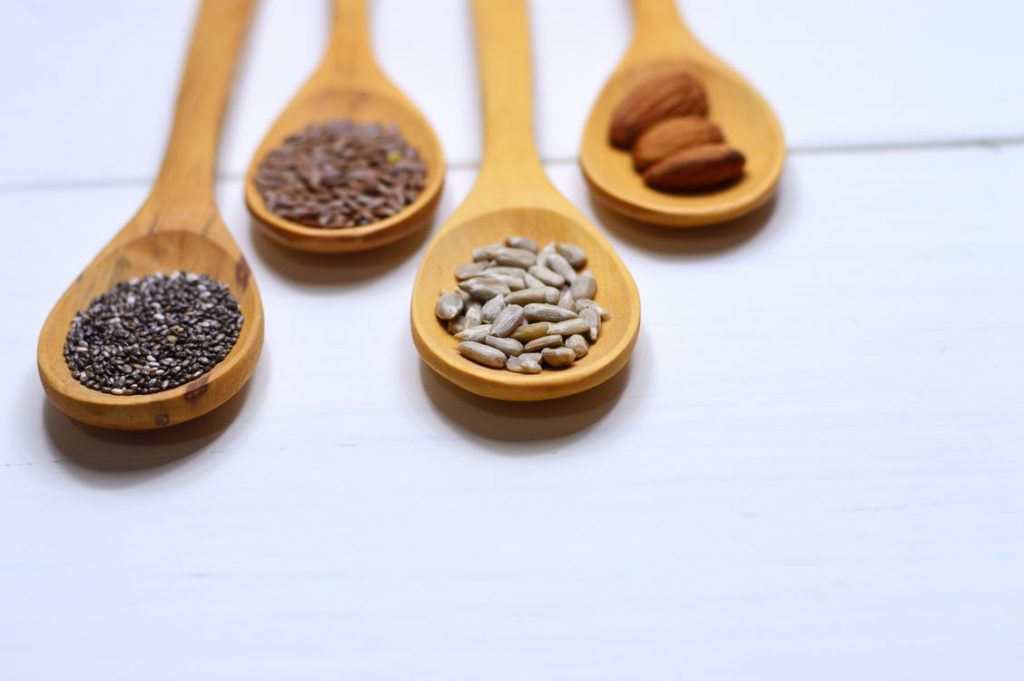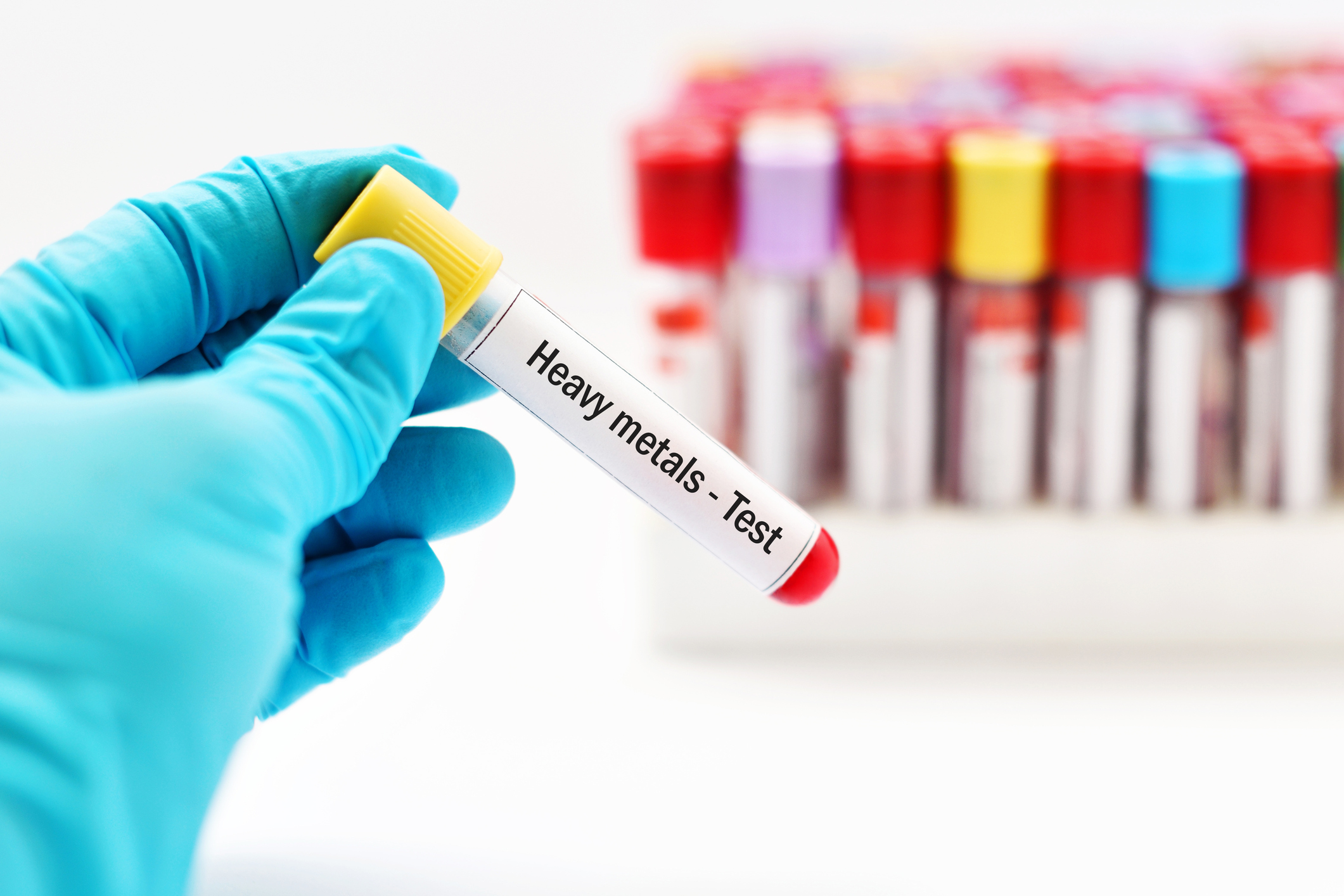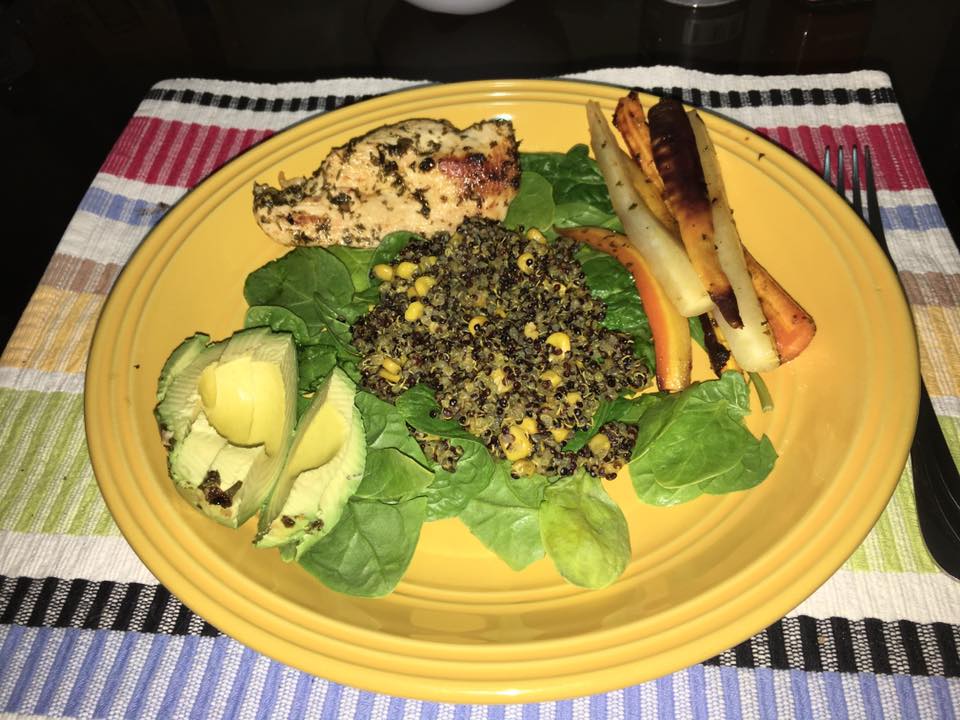Learning to navigate the season’s of one life is super important to self-care and mental health.
As October happens to be both World Menopause Month and Breast Cancer Awareness month, we thought it would be the perfect time to talk about these particular parts of life that some women may experience.
Today, we’re talking about how nutrition may play a role in breast cancer, early motherhood and menopause. We’ll also feature a list of Purium products that may help support women in these seasons of their lives.
Without further ado, let’s dive in!
Breast Cancer & Nutrition
Risk Factors
Breast cancer and its risk factors affect women of all ages, throughout every season of their lives.
While the Centers for Disease Control and Prevention (CDC) reports that older women face a higher risk of development of breast cancer compared to those under 50, women of all ages should still take precaution.
Besides age, here are some other risk factors that women should be aware of:
- Family History: Harvard Health suggests that women with two or more first-degree relatives (that means mothers, daughters and sisters) with breast cancer may be more at risk of developing the cancer too
- Breast Density: The health experts at Harvard also report that breast density could play a role. The more dense tissue that appears on screenings, the more at risk of developing the cancer.
- Chemical Exposure: It is also believed that some chemicals found in cosmetics and food may contribute to risk. Research is ongoing, but the Environmental Working Group and naturopaths discourage using products with well-known toxins and carcinogens.
What’s more, nutrition may also play role.
How Nutrition Plays a Role
Nutrition can play a tremendous role in minimizing and eliminating positive factors. According to the University of California, San Francisco, good nutrition can help decrease risk, progression and recurrence of the disease.
Here are risk factors related to nutrition.
- Obesity: Obese women (those with a body mass index of more than 25) face a higher risk factor of developing breast cancer, when compared to women at a lower BMI. (1) While the exact reasoning as to why this may increase risk can be complicated, many believe that excessive fat cells produce more estrogen in the body, which in turn affects hormone receptors. In theory, the receptors would cultivate the cancer, allowing for it grow.
- Vitamin D deficiency: This is a relatively new theory, but still it holds importance. One clinical review published in Breast Cancer: Basic and Clinical Research suggests that vitamin D plays an important role in stopping breast cancer from growing. (2) So, a deficiency in this vitamin may leave you at risk.
Hormones may also affect breast cancer development, most especially melatonin. But this time, we have positive news. Melatonin is currently being studied as a way to both prevent and treat cancer.
A review published in the medical journal Oncotarget explain that the hormone’s antioxidant-boosting power may help stop tumor and cancer cells from growing. (3) But of course, more study is needed.
Nutrition – The Purium Way
Our Co-Founder Dave Sandoval recommends Core 4 Nutrition for anyone looking for clean energy, better sleep and reduced stress. Coincidentally, this is the perfect pack for women too!
Why? Well, Core 4 may help support healthy living with pure, vegan protein and plant nutrients. Plus, the plant ingredients may help support healthy hormone balance, most especially melatonin, which can help you enjoy deeper sleep.
Motherhood & Nutrition
While breast cancer prevention applies to all women, this next section may not apply to everyone. Not every woman experiences this season of life, but for those who do, they know just how beautiful an experience it can be.
We’re talking about one of the hardest, yet rewarding jobs to exist on the planet: being a mom.
But we won’t be talking about children here. (Click here if you want to read about children’s health though.) Instead, we’re going to talk about how motherhood affect new moms emotionally.
Postpartum Depression
Postpartum depression is real, even if many people do not talk about it. For those not familiar, the Mayo Clinic defines this type of mental health issue as long-lasting symptoms of depression after child birth.
The Cleveland Clinic reports that about 15% of new mothers develop this type of depression after delivery of their baby.
Risk Factors
The National Institute of Health reports that risk factors of postpartum depression can be both internal and external.
Here are a few:
- Previous mental health issues: Women with diagnosed depression or other mental health issues may be more at risk of developing postpartum depression.
- Lack of Support: Women who do not feel supported by their partner, family or friends during pregnancy may be more at risk of facing mental health issues.
And what can help reduce risk factors? Here is what current research is saying.
- Breastfeeding: According to some studies, breastfeeding your child may help reduce post-partum depression risk. (4) One study published in The International Journal of Psychiatry in Medicine found a correlation between the two. Interestingly enough, they also suggest post-partum depression may decrease the likelihood of a woman breastfeeding her baby. But more study is needed to verify this theory.
- Strong support: Having strong emotional support during and after pregnancy can help lower risk of postpartum depression. (5) One literature review in the journal Archives of Women’s Mental Health suggests support from family, friends or even a professional, can help new mothers avoid mental health issues.
- Vaginal birth*: Emerging research suggests that women who give birth vaginally face a decreased risk of developing post-partum depression when compared to women who receive cesarean sections (C-sections).(6) In one study published in the Iranian Journal of Nursing and Midwifery Research, researchers suggest that emotional health may factor into the equation. In this study, women who gave birth “naturally” reported higher scores on emotional assessments when compared to women who received a C-section.
*No woman should be judged for her choice of birth process, whether it be vaginal or through C-section (her body, her choice.) We’re simply presenting research regarding post-partum depression.
You may be wondering if nutrition also plays a role in post-partum depression. The answer is yes!
How Nutrition Affects Post-Partum Depression
Early research indicates that what women eat can affect their likelihood of developing post-partum depression. One literature review published in the journal Nutrition Research Reviews suggests vitamins, minerals and micronutrients may play a role. (7)
This makes sense, because our mental health is generally tied to our emotions. We can see examples of this when we are a little down in times when we aren’t properly nourished.
How Can Purium Nutrition Help
Our Co-Founder Dave Sandoval recommends using the Core 4. Plant ingredients like tart cherry and spirulina help support daily nutrition for new mothers. Plus tart cherry may help support deeper sleep, which is linked to better mood.
Check out our list of products that new mothers love in our short guide.
Menopause & Nutrition
From one cycle of life, we move to another. Menopause is something most women need deal with when they reach a certain age.
The National Institute of Aging defines menopause as the period of time and symptoms women experience after they stop menstruating. Usually, this occurs between the ages of 45 and 55.
What you may not know is that not all women experience menopause in the same way. While some women may experience an increase of symptoms, others may not notice any at all.
Menopausal Symptoms & Risk Factors of Early Onset
The Mayo Clinic reports that women may experience these symptoms when going through menopause:
- irregular period
- hot flashes or chills
- irritability or mood issues
- decreased metabolism, causing some weight gain
Some women develop menopause early (before the age of 40). Here are some risk factors that may influence if a woman develops early onset, courtesy of the Mayo Clinic:
- family history of early onset
- history of radiation therapy or chemotherapy
- use of estrogen-reducing medications
- smoking
You may be wondering, what happens if a woman were to to develop menopause earlier than usual? Well, it is believed that early onset puts women more at risk for disease in the future.
One literature review published in the medical journal Maturitas details that early onset may increase risk of cardiovascular, neurological and even psychiatric disease. (8) Researchers hypothesize that this risk could be related to hormonal and estrogen deficiencies.
How Nutrition Affects Menopause
What women eat can affect her menopause symptoms as well as decrease likelihood of early onset. So, what are some foods that women can eat to help?
Healthy fats seem to be a good way to go! One study published in the Journal of Women’s Health found that healthy fats in flax seeds helped decrease hot flashes and night sweats in a sample size of Native American women. (9)
Other healthy sources of healthy fats include chia seeds, hemp seeds or fish (if you are not vegan).
What’s more, green veggies and vibrant fruits can help as well. One study published in the journal Menopause found that a diet high in veggies, fruits, fiber and soy helped decrease menopause symptoms when compared to a control group of women. (10) Plus, the women were able to shed some pounds, too!
How Can Purium Help?
So, how can Purium factor in for a healthy diet for women? Well, our Co-Founder recommends any of green products (like Green Spectrum) along with Power Shake and Super Life.
- Power Shake contains healthy fats (like flax seeds) as well as powerful greens (like wheatgrass and spirulina), and rice bran. Rice bran is believed to help support the body’s response to hot flashes.
- Super Life contains plant and herb extracts that may support healthy hormone balance (like ginseng, ginkgo extract and cordyceps mushroom).
- Rice Bran Solubles contains rice bran, which may help with plant nutrients. (You can try this if you don’t like Power Shake).
Stay Healthy & Happy
Stay healthy and happy! If you want to learn more about our other products, check out our store.
Studies
- Picon‐Ruiz, M., Morata‐Tarifa, C., Valle‐Goffin, J. J., Friedman, E. R., & Slingerland, J. M. (2017). Obesity and adverse breast cancer risk and outcome: mechanistic insights and strategies for intervention. CA: a cancer journal for clinicians, 67(5), 378-397.
- Atoum, M., & Alzoughool, F. (2017). Vitamin D and breast cancer: latest evidence and future steps. Breast cancer: basic and clinical research, 11, 1178223417749816.
- Li, Y., Li, S., Zhou, Y., Meng, X., Zhang, J. J., Xu, D. P., & Li, H. B. (2017). Melatonin for the prevention and treatment of cancer. Oncotarget, 8(24), 39896.
- Hamdan, A., & Tamim, H. (2012). The relationship between postpartum depression and breastfeeding. The International Journal of Psychiatry in Medicine, 43(3), 243-259.
- Werner, E., Miller, M., Osborne, L. M., Kuzava, S., & Monk, C. (2015). Preventing postpartum depression: review and recommendations. Archives of women’s mental health, 18(1), 41-60.
- Sadat, Z., Taebi, M., Saberi, F., & Kalarhoudi, M. A. (2013). The relationship between mode of delivery and postpartum physical and mental health related quality of life. Iranian journal of nursing and midwifery research, 18(6), 499.
- Ellsworth-Bowers, E. R., & Corwin, E. J. (2012). Nutrition and the psychoneuroimmunology of postpartum depression. Nutrition research reviews, 25(1), 180-192.
- Shuster, L. T., Rhodes, D. J., Gostout, B. S., Grossardt, B. R., & Rocca, W. A. (2010). Premature menopause or early menopause: long-term health consequences. Maturitas, 65(2), 161-166.
- Patade, A., Devareddy, L., Lucas, E. A., Korlagunta, K., Daggy, B. P., & Arjmandi, B. H. (2008). Flaxseed reduces total and LDL cholesterol concentrations in Native American postmenopausal women. Journal of women’s health, 17(3), 355-366.
- Kroenke, C. H., Caan, B. J., Stefanick, M. L., Anderson, G., Brzyski, R., Johnson, K. C., … & Sims, S. T. (2012). Effects of a dietary intervention and weight change on vasomotor symptoms in the Women’s Health Initiative. Menopause (New York, NY), 19(9), 980.







That’s good to know that lack of support could make post-pregnancy depression worse. I wouldn’t want my wife to have to go through that. I’ll have to make sure to be extra supportive during that time after our baby is born.